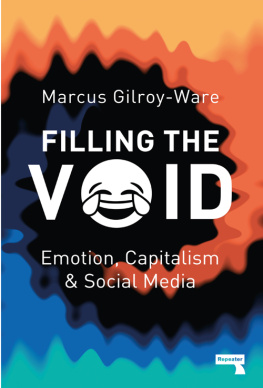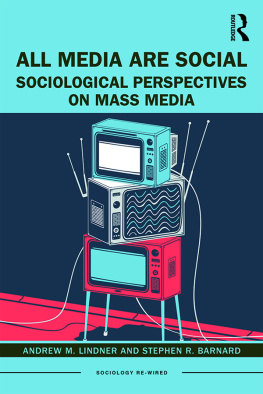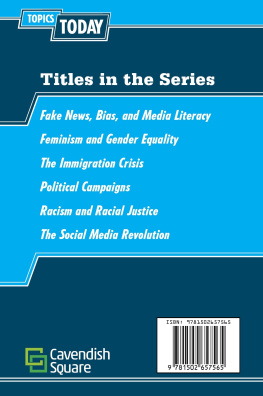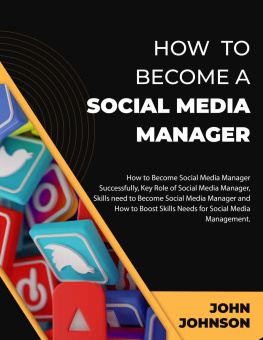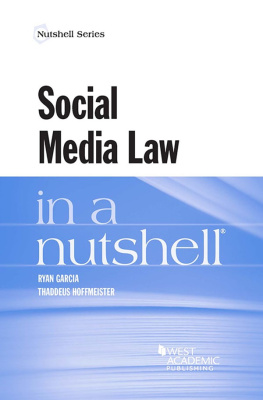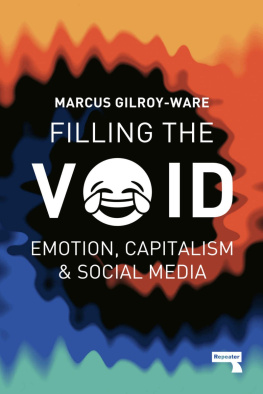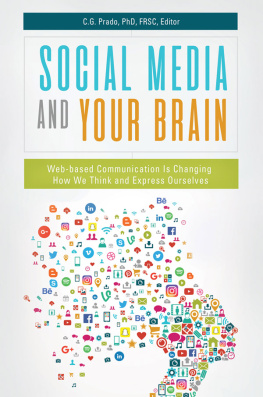Filling the Void
Filling the Void
Emotion, Capitalism and Social Media
Marcus Gilroy-Ware

To the lasting future of Planet Earth
Preface
Such is the astonishing overuse of low-paid casualised labour in UK universities that in April 2008, aged just 24, I was given the opportunity to teach masters students in one of the UKs most prestigious journalism departments, despite not having a masters degree or any qualification in journalism, and having never worked as a journalist. Especially given the difficult things it gave me to think about, this is an opportunity for which I will nonetheless be forever grateful. In my under-qualified, youthful foolishness, I was thrilled with the flattering visiting lecturer business card, not realising the scale of the challenge I had accepted. My responsibility was to teach these students about online journalism, and the first task that this involved was to reverse engineer what good online journalism actually consisted of, so that my teaching of it would keep my passionate but demanding students happy.
I had been largely unaware of journalisms existential crisis, particularly in relation to the internet, but it didnt take long to figure out something was wrong. Already having a firm understanding of the web from a technical and a design perspective, my attentions focused on what journalism really and truly meant in an ontological sense, how that could look when expressed on the web, and what other people were doing in this area. As I explored the world of journalism beyond my department I found to my dismay that, where technology was not, at one extreme, being completely fetishised in the newsroom and was not, at the other extreme, inspiring utter fear amongst a technophobic old-guard, the emphasis was on the reproduction of existing journalistic practices in as faithful a way as the HTML medium would allow. Journalists, some of whose achievements in their own industry I respected enormously, seemed to think that they could start dictating the rules of this medium. As a digital native who had already been a keen web user for over a decade, I knew that this nave, arrogant positivism about what they had always done would not fly, and that fetishising the technology would be no good either. Didnt they realise that this isnt how the web works? The web, I felt, had a culture, a way of working, and if journalists wanted to continue doing what was essential to their work bringing people important information they needed to pay attention to the ways in which the web functioned.
In the subsequent years, I disavowed myself of the idea that the web had a culture. Instead it seemed more likely that it was reflecting the culture of the moment in concentrated and variously distorted ways, like an old mirror. As the web quickly developed and became more and more integrated into peoples lives, I became increasingly sure of one thing: Besides the information super-highway (more of an information lane these days), it is the non-factual, non-informational uses of the web that would come to dominate. Those in the business of communicating facts for a living would need to pay very close attention, and consequently, so did I.
In the course of this enquiry, I have become fascinated with one question: If people dont primarily use the web for information anymore, what do they mostly use it for, and why? What started with an interest in helping my students understand the flow of information over the web became a preoccupation with the use of networked media to learn something about people and society more generally. This runs somewhat against the tide of a significant proportion of research on social media, which has used behaviour to understand technology, instead of the reverse. Rather than just talking about journalism, we therefore needed to talk about the world in which journalism was trying to survive. To explain the true challenge facing my journalism masters students, I consequently found myself drawing on an increasingly broad array of materials. The works of people as diverse as Benedict Anderson, Harry Braverman, John Berger, Natalie Fenton, David Harvey, Julie E. Cohen, Evgeny Morozov, Rebecca Mackinnon, Mary Poovey, and Lawrence Lessig often became our readings or informed my lectures, and incidentally it is in the same spirit of incorporating any interesting or relevant material, regardless of intellectual tradition, that I have written this book.
In my first few years of teaching, the journalism department in that particular institution was mostly preoccupied with reproducing the golden era of journalism. While I enjoyed some good conversations, other colleagues showed the same impatience, contempt, and desire to oversimplify that often colours the demeanour of journalists confronted with theory. Single-minded emphasis on graduates securing jobs within a shrinking journalism industry, drowning in its own dogma, did not help. If anybody had actually asked what I was teaching, they might well have been horrified by the outward-looking unorthodoxy, but for the most part I was sheltered by indifference. While I am pleased to say that this picture has much improved today as that department has become more well-rounded and forward looking, the enquiry that has followed that initial challenge has nevertheless been largely a conversation with academic colleagues from other disciplines, with friends and family, and with my students, who were far more open-minded, and many of whom became friends. In the end this was just as well, because the answers ultimately have only an indirect connection to journalism, even if they are directly applicable. Online media are the water in which journalists must swim; the party at which they must ingratiate themselves; the language in which they must gain fluency.
This book is the result of my explorations of our relationship to online media, and articulates the conclusions I have come to about human subjectivity, capitalism, and technology. I have made a series of arguments that combine the psychological and political, the philosophical and sociological. The arguments I present here will not accord with a conventional deterministic view of what social media are doing to us, or to our culture, politics, friendships, etc. Nor will they accord with more nuanced critiques advanced in the past about identity, mass self-communication, new public spheres, subcultures, and so forth.
As the architecture and features of the web have developed, it has become increasingly clear that so-called social media are the means by which access to information and other content is facilitated online. Social media, while often subjected to facile, deterministic analysis, are a fascinating and varied site at which to observe culture, psychology, politics, language, emotion, and abundant human creativity, and information still has an important role to play on them too. At the same time, there are worrying aspects to how they are used. The compulsive, highly dependent relationship that many people have developed with social media, while it must not be judged or sneered at, needs to be understood widely in order to be ameliorated. What this usage says about our states of mind and the state of our societies is not a lesson about technology so much as about society and human subjectivity themselves. The ways that our vulnerability in relation to these media is being taken advantage of by large, cynical corporations are also worrying. Again, these are more lessons about capitalisms role in that society, rather than about technology. Similarly, whilst at times it will be necessary to give an account of the usage of social media and talk about how
Next page
